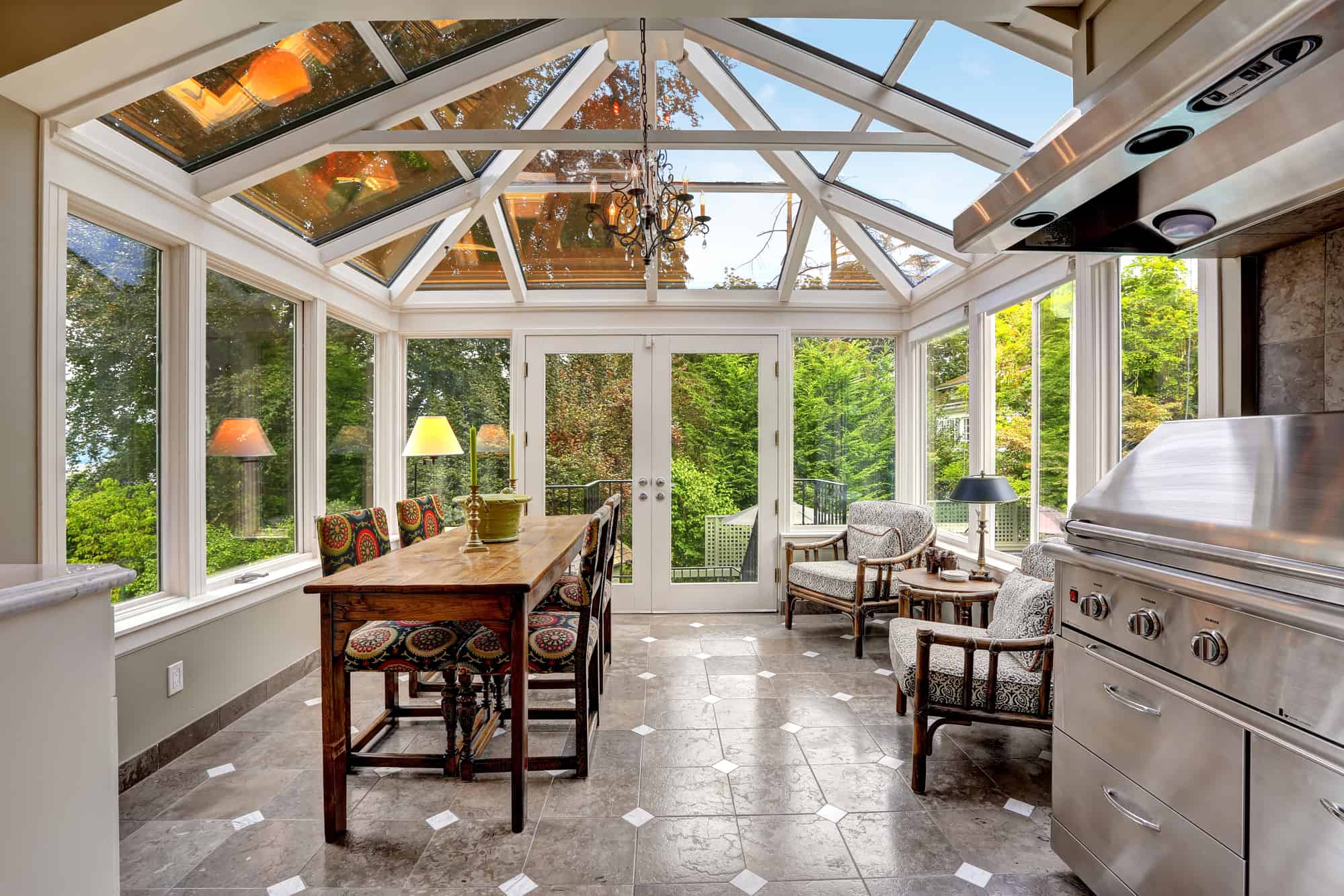Enclosed patios make a beautiful addition to any home, but if you’re looking to sell your home, you may have some questions about this space.
In fact, many homeowners wonder whether their enclosed patio counts as home square footage.
Usually, enclosed patios don’t count as home square footage, but it’s not impossible. It generally depends on the quality of your enclosed space. For example, if your enclosed patio has components such as access to heat and A/C, it could be counted as home square footage.
In this article, we’ll be discussing some of the reasons your patio may not count as home square footage. Additionally, I’ll write about the circumstances a patio is considered part of your home’s square footage as well as other factors to consider.
If you’re interested in learning more about this topic, keep on reading.
Why Your Patio May Not Count As Home Square Footage
As we stated above, there may be some factors stopping you from counting your enclosed patio as home square footage.
There are essential criteria that must be met for this kind of space to be included in your home’s square footage.
Below, we’ll explore some components your patio may not have that may be excluding it from being a part of your home’s square footage.
Lower Quality
If your enclosed patio is of lower quality than the rest of your living space, it’s doubtful you can consider it part of your home’s square footage.
Anything included within the square footage should feel like the rest of your home, so it’s essential to be mindful of this.
If your enclosed patio doesn’t have the same look and feel and doesn’t flow with the rest of your space, you’ll likely be unable to include it within the square footage.
Most of the time, enclosed patios, no matter how nice they are, are seen as extensions of the property instead of a part of your home.
If your patio has an excellent and consistent flow with the rest of the house, the possibility you can include it in your square footage increases.
An appraiser gives you more accurate information on whether your unique space factors into the home’s square footage.
No A/C or Heat Source
These are the two most significant components that contribute to your enclosed patio being a part of the square footage or not. Your patio needs to be both heated and cooled by your home’s same utilities to include it as part of the home’s square footage.
If the same utilities are not being used with your enclosed patio, it’s unlikely this space can be included within your square footage. This may sound familiar if you read our Sunroom vs. Screened Porch Showdown).
It’s also important to note that if your enclosed patio is subjected to an A/C unit or heat source, it has to be the same ones working within the rest of your house.
Your patio can’t be powered by utilities that don’t also operate indoors and have the square footage count.
Once again, this is one of the most critical components that separate your patio from counting as square footage or not, so it’s crucial to be mindful of this.
Doesn’t Flow With the Rest of the House
We briefly mentioned this factor earlier, but if your enclosed patio feels separate from the rest of your home, it most likely doesn’t count as square footage. There are plenty of factors that may be preventing your patio from flowing with the rest of your home.
For instance, less finished floors may result in your enclosed patio feeling like less part of the home.
Other factors such as the walls and windows’ construction quality can also indicate whether your patio feels like a part of your home instead of an extension.
Another factor that may be preventing your enclosed patio from being considered a part of your home is how one gains access to the inside. If your patio is entirely separate from the rest of your home, it’s unlikely this space flows with the rest of your living space.
Without some time of flow or function, it’s unlikely your enclosed patio will count as home square footage.
Ceiling Height
Another factor that may stop your enclosed patio from being considered a part of your square footage is the ceiling height.
When it comes to all the rooms within your living space, at least one-half must have a ceiling height of at least 7ft.
If your patio doesn’t reach this requirement, it can’t be included within your home’s square footage under ANSI guidelines. It’s essential to keep all these factors in mind to calculate your home’s actual square footage correctly.
What To Consider When Selling a Home With an Enclosed Patio
Now that we’ve gone over some of the factors that may be preventing your enclosed patio from being considered a part of your square footage, below, we’ll explore what else you should consider if you’re selling a home that has an enclosed patio.
There Are Still Benefits to Your Enclosed Patio
While you may not be able to include your patio as a part of your home’s square footage, there are still benefits to selling a house that has this kind of space.
For starters, even if this space isn’t factored into your home’s overall square footage, a decently sized patio will make for a pleasant surprise when interested parties are looking at your home.
Buyers won’t mind that specific components around your house don’t count as square footage; they’ll enjoy having access to more space.
Not being able to include your enclosed patio within your home’s square footage won’t prevent you from successfully selling your place, so it’s important to remember that.
Hire an Appraiser
If you’re still unsure whether you can or should list your enclosed patio under your home’s square footage, it’s best to reach out to an appraiser to get their expertise on the situation. Your appraiser will help you define whether your patio is acceptable enough to be counted as square footage.
Appraisers will determine whether your enclosed patio is either finished or unfinished and can help you identify a finished vs. unfinished patio.
For example, a finished patio has quality air conditioning vents and a stable temperature, creating a space that’s livable all year round.
An unfinished patio has vinyl windows and doesn’t flow organically with the rest of the house. If you’re still unsure where your enclosed space falls on the map, it’s best to contact an appraiser as soon as possible.
They will be able to give you the most accurate information and advice after they inspect your space thoroughly.
What To Remember When Looking To Sell a House With an Enclosed Patio
We went over a lot of information in this article about whether your enclosed patio is factored into your home’s square footage. Below, we’ll briefly go over what you should remember if you’re looking to sell a house with this kind of space included.
- Your patio must be heated and cooled by the same utilities used in your house to be counted as home square footage.
- Your patio should flow nicely with the rest of the home to be included.
- You should hire an appraiser to inspect your space if you’re still unsure.
- Whether it’s counted as square footage or not, your enclosed patio will be seen as a nice bonus for potential buyers.
Summary
In this article, we discussed whether your enclosed patio counts as home square footage. Many factors can prevent your patio from being a part of the square footage, such as a lack of heating or cooling utilities and an improper ceiling height.
We also discussed what you should consider doing if you’re currently in this position.
Contacting an appraiser is a great way to get a second opinion on the state of your patio and whether it’s worth factoring into your home’s square footage.
Sources
- Sacramento Appraisal Blog: Does An Enclosed Patio Count As Square Footage
- Real Estate Appraisal Austin: Do Enclosed Patios Add Living Area
- Appraisal Experts: Unfinished Enclosed Patios
- Pacific Patio: Is a Sunroom Counted In A Home’s Total Square Footage?
- RiverFront Appraisal: What Can I Count As a Living Area?

